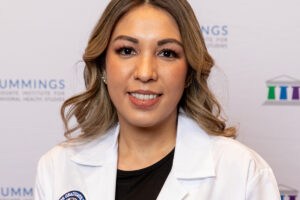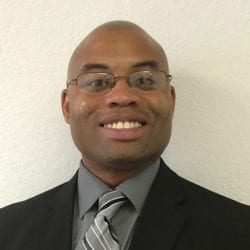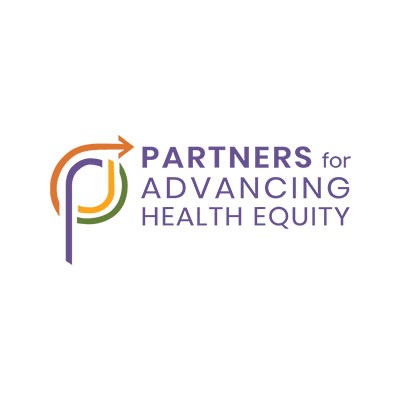
Larry Ford, DBH
Larry Ford, DBH
Faculty at Cummings Graduate Institute for Behavioral Health Studies & Founder of Hands to Guide You
Dr. Larry Ford received his Bachelor of Science in Behavioral Science and Ethics from Mid-America Christian University in Moore, Oklahoma, and a Bachelor of Science from Oklahoma State University. Dr. Ford received his Masters in Counseling with an emphasis in Human Relations from the University of Oklahoma, and he received his Doctorate in Behavioral Health from Arizona State University.
Inspired by the volumes of studies Dr. Ford completed on how infinitely the psyche affects the body, Dr. Ford founded Hands to Guide You as he fulfilled his doctoral studies in November 2011.
Dr. Ford centers his practice on the certainty that there is no physical health without mental health, and correspondingly Dr. Ford has advanced Hands to Guide You as a preeminent leader in Integrated Care and Population Health. Hands to Guide You, with Dr. Ford at the helm, enjoys distinction for engendering unparalleled patient rehabilitation and recovery rates, and expansive patient health literacy.
Providing and teaching the necessity of integrated care, and the entrenched correlation between emotional well-being and physical health have become Dr. Ford’s trademarks. Hence, Dr. Ford’s esteemed reputation in integrating behavioral and medical health has yielded him requests from all over the nation to serve as a keynote speaker imparting erudition, expertise, and patient success stories. Dr. Ford has spoken and continues to receive invitations to lecture before hundreds of fellow clinicians and additional medical and behavioral health professionals including engagements at:
- Cummings Graduate Institute 2015 and 2016 fall conferences in Phoenix, Arizona
- The Clinton Foundation
- The Oklahoma Department of Human Services
- The September 2014 Behavioral Health Conference in San Antonio, Texas sponsored by the National Alliance of Professional Psychology Providers
Dr. Ford equally raises awareness on quality behavioral health care in his podcasts and in radio broadcasts including his show called Holistic Health, which has grown in audience share by 8% since Dr. Ford began hosting the program in October 2016.
Since September 2014, Dr. Ford has been a regular guest speaker on the Los Angeles, California radio show, Parenting Through the Radio, and he instills information on the emotional aspects of health to Dallas, Texas listeners of Life Choice Radio on the Fish Bowl Radio Network. Reflection of Dr. Ford’s commitment to physical health through advanced behavioral health is also accessible in an interview of Dr. Ford available on You Tube..
Dr. Ford’s expertise on the impact of chronic diseases such as Chronic Obstructive Pulmonary Disease, depression, and anxiety on physical health have been published in peer review articles at Arizona State University in October 2014.
Dr. Ford enjoys eminent respect from both his patients and contemporaries as an authority on decreasing excessive health care costs in the state of Oklahoma, which therein has significantly reduced health insurance coverage denial due in great part to Dr. Ford’s accomplishments in holistic treatments. Dr. Ford’s integrated treatment has also decreased hospital re-admission by 30% in southwest Oklahoma City alone.
It is for Dr. Ford’s principal leadership over the compassionate interdisciplinary treatment team at Hands to Guide You, that epitomizes skilled behavioral health services in Oklahoma, and numerous other notable achievements that the Cummings Graduate Institute honored Dr. Ford with the prestigious Biodyne Life Change Award in October 2016.
Testimonials
As a Doctorate of Behavioral Health (DBH) student my vision for healthcare is to disrupt the current model, close gaps to care and create healthcare improvements. In the evolving world of healthcare I believe behavioral healthcare providers (BCP) are essential to the development of integrative healthcare. Once I obtain a DBH degree, I know I will gain a leadership role and be able to add quality to the creation of integration efforts worldwide. I know I will graduate with the essential tools I need to stand at the forefront of integrated healthcare. I want to create healthcare improvements for marginalized populations that are typically underserved or forgotten. As an individual of two minority groups; woman and African American, I am very passionate about helping reduce cultural, ethnic, social economic and geographic disparities within healthcare systems.
March 30, 2021
Since beginning my studies at CGI, I have been awakened to how much I truly did not know and understand despite my specialty training in Social Work and behavioral health needs. The classes at CGI allow me to explore topics that I may not have thought to investigate and encourage me to question and think outside the “normal” delivery of behavioral health services. Services that I previously thought were quality and designed to meet the needs of special populations, I now believe to be woefully inadequate to serve the needs of the patients. Patients cannot receive the best quality, efficient, and timely care they need and deserve within institutions that are not integrated. Institutions that continue to silo and do not encourage collaboration and integration are not focused on the needs of the patient.
March 30, 2021
I believe, as a DBH, I will disrupt the current healthcare systemby promotingguaranteed health care for allasa right, not a privilege.I willadvocate fora national, rather than state, licensing of providers. This will allow clinicians (medical,behavioral health, etc…) to provide care across state lines using telemedicine.Finally, the skills I have learned at Cummings Graduate Institute for Behavioral Health Studies allow me to identify healthcare delivery concerns, propose alternative interventions and cost–effective solutions and evaluate theirreturn on investment.
March 29, 2021
Since entering CGI, I have more confidence in discussing the need for healthcare systems to have a population health approach to care, and to put in place “upstream” programming. I have always been proud of working in a hospital and delivering care, working as a multidisciplinary team member, and making a difference. I now realize I have been part of healthcare’s focus of “treating the sick” rather than being an influencer for preventative care.
Preventative care can be part of service delivery from a hospital system; we should not rely only on public health programs to tackle social determinants of health. COVID-19 is not only impacting mental health but also how we are delivering medical care. Could COVID-19 be an unintended force for healthcare policy change? Apostolopoulos et al. (2020) reports the complexity presented to the health care system by COVID-19 has created change that will continue in healthcare for years to come. The needed changes to delivery and access will require a policy shift in all levels of healthcare (Apostolopoulos et al., 2020).
December 13, 2021
As a member of the AAPI community, I’m very familiar with the barriers to mental health services and the need to break through the glass wall of cultural stigma that prevents many from receiving potentially life–saving treatment. I was the only Asian American person in my master’s cohort, the only Asian American person in many of my clinical work settings, the only Asian American person to walk into many of the professional settings that I pushed myself to show up to. In my current practice, I’m constantly reminded by my patients of how difficult it is to find an Asian American mental health provider, though this reminder constantly informs me that more needs to be done for my community. Day after day, I read stories of Asian American people who die by suicide as a consequence of our culture’s avoidance of mental health topics. As a DBH, my biggest goal is to use my expertise in whole–person care to amplify the conversation around mental health and help my community understand that mental healthcare is not a privilege that we are not entitled to, it is a crucial part of our healthcare that will manifest differently in us than what many Western psychology or psychiatry textbooks will describe, and that our unique experience of mental health issues are valid, important, and is time to be part of the larger conversation.
September 16, 2022
Pursuing a doctorate in behavioral health is essential in helping to transform my thinking as a healthcare provider; moving from a more traditional mindset, embracing change and a “different world view” of tools for successful client outcomes. This type of advanced study will equip me with the clinical and leadership skills to be a leader on the cutting edge of behavioral health. This type of training would make me an asset to the healthcare workplace; specifically to function effectively as a change agent for the successful outcomes of the workplace and its clients.
September 23, 2022
I remember before my interview when applying to the DBH program, I researched information about Dr. U. Grant Baldwin along with other staff members of CGI. I said to myself, this is the kind of institution I want to be apart of. Being apart of CGI feels like a huge family, even though long distance, everything and everyone is always so close.
August 20, 2022
The DBH is exactly the type of doctorate degree that I’ve been searching for. A doctorate that is clinical focused is where my interest lies. I am motivated to pursue this degree, and courses like Pathophysiology, Psychopharmacology, Neuropathophysiology, only add to that excitement. One must be motivated to complete any degree program. The Doctor of Behavioral Health fits
that bill for me. In fact, I would say that I am beyond motivated.
July 8, 2022
The Latest
Latest News


DBH Alumni Spotlight: Dr. Pauline Tolentino Pablo, DBH, BCBA, IBA
January 21, 2025 Read MoreClick HERE for more news!
Latest Podcasts
Bridging Cultures in Healthcare
Recovery Housing and Clinical Care
10 Years of Innovation in Behavioral Health Education
Tackling Youth Mental Health
Addiction and the Path to Recovery
AI The Next Healthcare Evolution
The Behavioral Health Continuum of Care
Click HERE for more podcast episodes!
Latest Newsletters
December 2024 Biodyne Mindset Newsletter
November 2024 Biodyne Mindset Newsletter
October 2024 Biodyne Mindset Newsletter
September 2024 Biodyne Mindset Newsletter
August 2024 Biodyne Mindset Newsletter
July 2024
Click HERE for more newsletters!




























